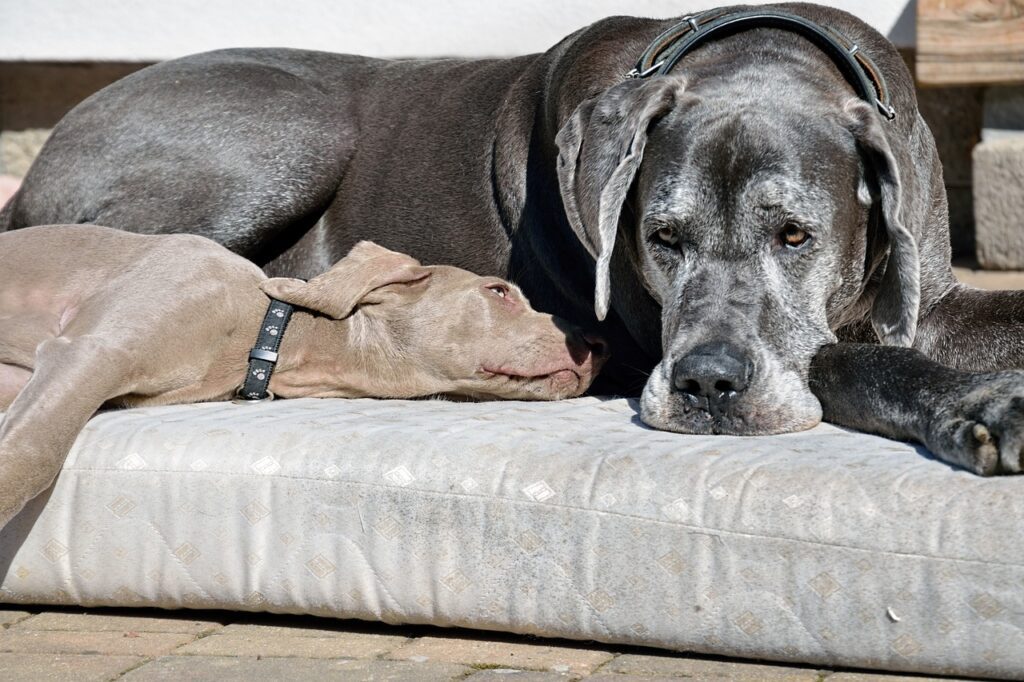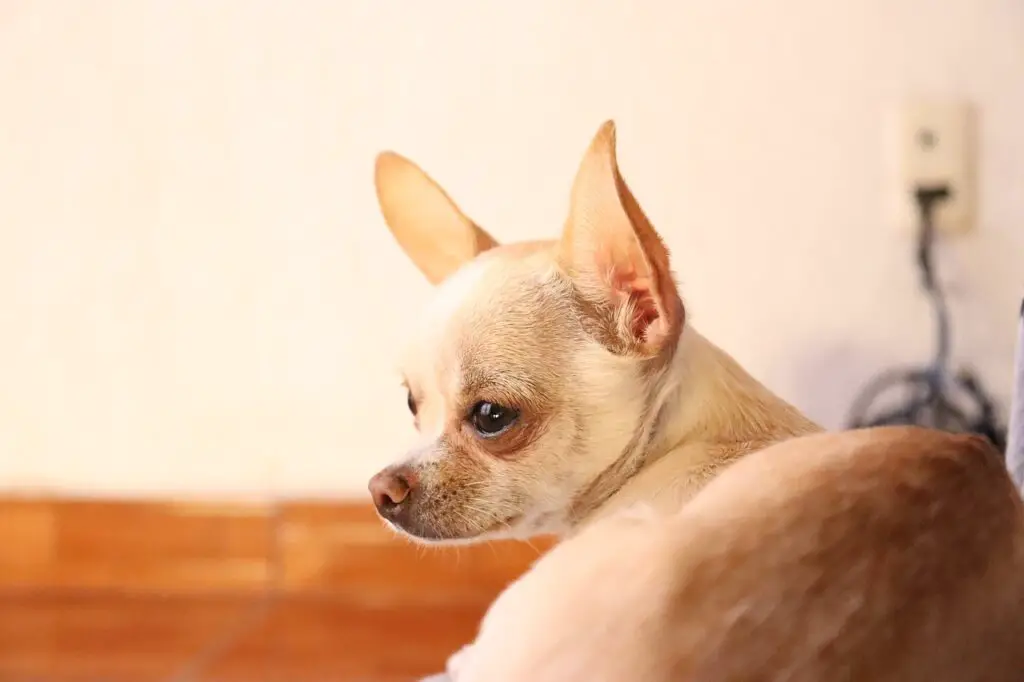When nature calls, can a mother dog still provide the care her puppies need? Discover the challenges and considerations of nursing puppies while dealing with diarrhea.
From health concerns to hygiene precautions, find out how this delicate situation impacts the bond between a mother and her litter.
Key Takeaway
| Topic | Key Takeaway |
|---|---|
| Can a Mother Dog Nurse Puppies If She Has Diarrhea? | Yes, a mother dog can nurse her puppies if she has diarrhea, but close monitoring and veterinary assistance are important. |
| Is It Normal For a Mother Dog To Have Diarrhea? | Diarrhea in mother dogs is not normal and can indicate an underlying issue, requiring veterinary evaluation and treatment. |
| How To Treat Diarrhea In Nursing Dog | Follow veterinary advice, monitor the dog’s condition, maintain hydration, adjust the diet, administer prescribed medication, and maintain a clean environment. |
| Hygiene and Sanitation Measures To Consider | Clean the living area regularly, properly dispose of waste, practice hand hygiene, separate food, and water bowls, maintain clean water sources, avoid cross-contamination, limit contact with sick animals, and follow veterinary recommendations. |
| Conclusion | Diarrhea in a mother dog poses challenges, but with proper management, veterinary care, and hygiene measures, the bond between the mother and her puppies can remain strong. |
Can a Mother Dog Nurse Puppies If She Has Diarrhea?

Yes, a mother dog can still nurse her puppies if she has diarrhea.
However, it is important to monitor her condition closely and seek veterinary assistance if the diarrhea persists or worsens, or if the mother dog shows signs of discomfort or a decline in milk production.
If a mother dog has diarrhea, it can potentially affect her ability to nurse her puppies. Diarrhea can lead to dehydration, nutrient loss, and overall weakness in the mother dog.
These factors can impact her milk production and the quality of her milk, which may not provide sufficient nutrition for the puppies.
Furthermore, diarrhea can be a symptom of an underlying illness or infection in the mother dog.
In such cases, it is important to address the root cause of diarrhea and seek veterinary assistance to ensure both the mother and the puppies receive appropriate care.
If the mother dog has mild diarrhea and is otherwise healthy, she may still be able to nurse her puppies, but it is crucial to monitor her condition closely.
It’s recommended to provide her with a balanced and easily digestible diet, as advised by a veterinarian, to help alleviate her diarrhea and support her overall health.
Is It Normal For a Mother Dog To Have Diarrhea?

Diarrhea in dogs, including mother dogs, is not considered normal and can be indicative of an underlying issue.
Diarrhea can be caused by various factors such as dietary changes, dietary indiscretion, food intolerance or allergies, intestinal parasites, infections, stress, or other medical conditions.
If a mother dog experiences diarrhea, it is important to monitor her closely and assess her overall health.
If the diarrhea is mild and resolves within a day or two, and the mother dog is otherwise healthy and not showing any other concerning symptoms, it may not be a cause for immediate alarm.
However, it is still recommended to consult with a veterinarian to determine the underlying cause and provide appropriate treatment or management.
Persistent or severe diarrhea, diarrhea accompanied by other symptoms like vomiting, lethargy, loss of appetite, or dehydration, or if the mother dog appears unwell, it is crucial to seek veterinary attention promptly.
The veterinarian can evaluate the mother dog, conduct diagnostic tests if necessary, and recommend appropriate treatment to address the underlying cause of diarrhea and ensure the well-being of both the mother dog and her puppies.
How To Treat Diarrhea In Nursing Dog
Here’s a step-by-step guide on how to treat diarrhea in a nursing dog:
Step 1: Monitor the dog’s condition
Observe the nursing dog closely and assess the severity of the diarrhea. Take note of any additional symptoms such as vomiting, lethargy, or loss of appetite.
Step 2: Contact a veterinarian
Reach out to a veterinarian to discuss the nursing dog’s symptoms and seek professional guidance. Describe the duration, frequency, and consistency of the diarrhea and any other relevant information.
Step 3: Follow the veterinarian’s advice
Based on the veterinarian’s assessment, follow their instructions for treatment. They may recommend a variety of measures depending on the severity and underlying cause of the diarrhea.
Step 4: Keep the nursing dog hydrated
Ensure the nursing dog has access to clean, fresh water at all times. Mild dehydration can worsen diarrhea, so encourage the dog to drink regularly. If necessary, the veterinarian may suggest giving the dog an electrolyte solution to help restore hydration.
Step 5: Adjust the nursing dog’s diet
The veterinarian may advise altering the nursing dog’s diet temporarily. This can involve transitioning to a bland diet of easily digestible food such as boiled chicken and rice. Avoid giving any treats or table scraps during this time.
Step 6: Administer prescribed medication
If the veterinarian prescribes medication to treat the underlying cause of the diarrhea, follow their instructions carefully. Administer the medication as directed, ensuring the correct dosage and frequency.
Step 7: Maintain a clean environment
Keep the area where the nursing dog and her puppies reside clean and sanitary. Frequent cleaning will help minimize the risk of infection and promote a healthy environment for the nursing dog and her offspring.
Step 8: Monitor the nursing dog’s progress
Observe the nursing dog’s condition closely and note any changes. If the diarrhea persists, worsens, or if the dog exhibits additional concerning symptoms, contact the veterinarian for further guidance.
Remember, each case of diarrhea in a nursing dog can have different causes and treatments, so it is essential to consult with a veterinarian for personalized advice and appropriate treatment options.
Hygiene and Sanitation Measures To Consider
Here are some hygiene and sanitation measures to consider when caring for a nursing dog with diarrhea:
Clean the living area regularly
Regularly clean the living area of the nursing dog and her puppies. Remove any soiled bedding, feces, or urine promptly to maintain a clean and hygienic environment. Use appropriate disinfectants recommended by your veterinarian to sanitize the area.
Properly dispose of waste
Dispose of soiled bedding, feces, and any waste materials in a hygienic manner. Use disposable gloves when handling waste and avoid direct contact with the material. Seal waste in a securely tied bag before discarding it.
Hand hygiene
Practice good hand hygiene before and after handling the nursing dog, her puppies, or any waste materials. Wash your hands thoroughly with soap and water for at least 20 seconds to minimize the risk of spreading any potential infections.
Separate food and water bowls
Provide separate food and water bowls for the nursing dog. This helps prevent contamination of the water with food particles, which can worsen diarrhea or cause additional digestive issues.
Maintain clean water sources
Ensure that the nursing dog has access to clean and fresh water at all times. Change the water frequently to prevent contamination and keep the water bowl clean.
Avoid cross-contamination
Prevent cross-contamination by keeping the nursing dog’s living area separate from other pets or animals. This reduces the risk of spreading any potential infections or parasites.
Limit contact with sick animals
If there are other animals in the household that are sick or exhibiting symptoms, minimize contact between them and the nursing dog. This helps prevent the spread of illnesses and reduces the risk of the nursing dog’s condition worsening.
Follow veterinary recommendations
Follow any additional hygiene and sanitation recommendations provided by your veterinarian specific to your nursing dog’s condition. They may provide further guidance based on the underlying cause of the diarrhea and the overall health of the dog.
In Conclusion
In conclusion, when a mother dog has diarrhea, it can pose challenges to her ability to nurse her puppies effectively.
It is crucial to consider the impact on both the mother’s health and the well-being of the puppies.
Veterinary consultation is essential to diagnose the underlying cause and provide appropriate treatment.
Hygiene, nutrition, and alternative feeding options may be necessary to ensure the puppies receive proper care.
With proper management and monitoring, the bond between a mother dog and her litter can remain strong even during this challenging time.





Leave a Reply